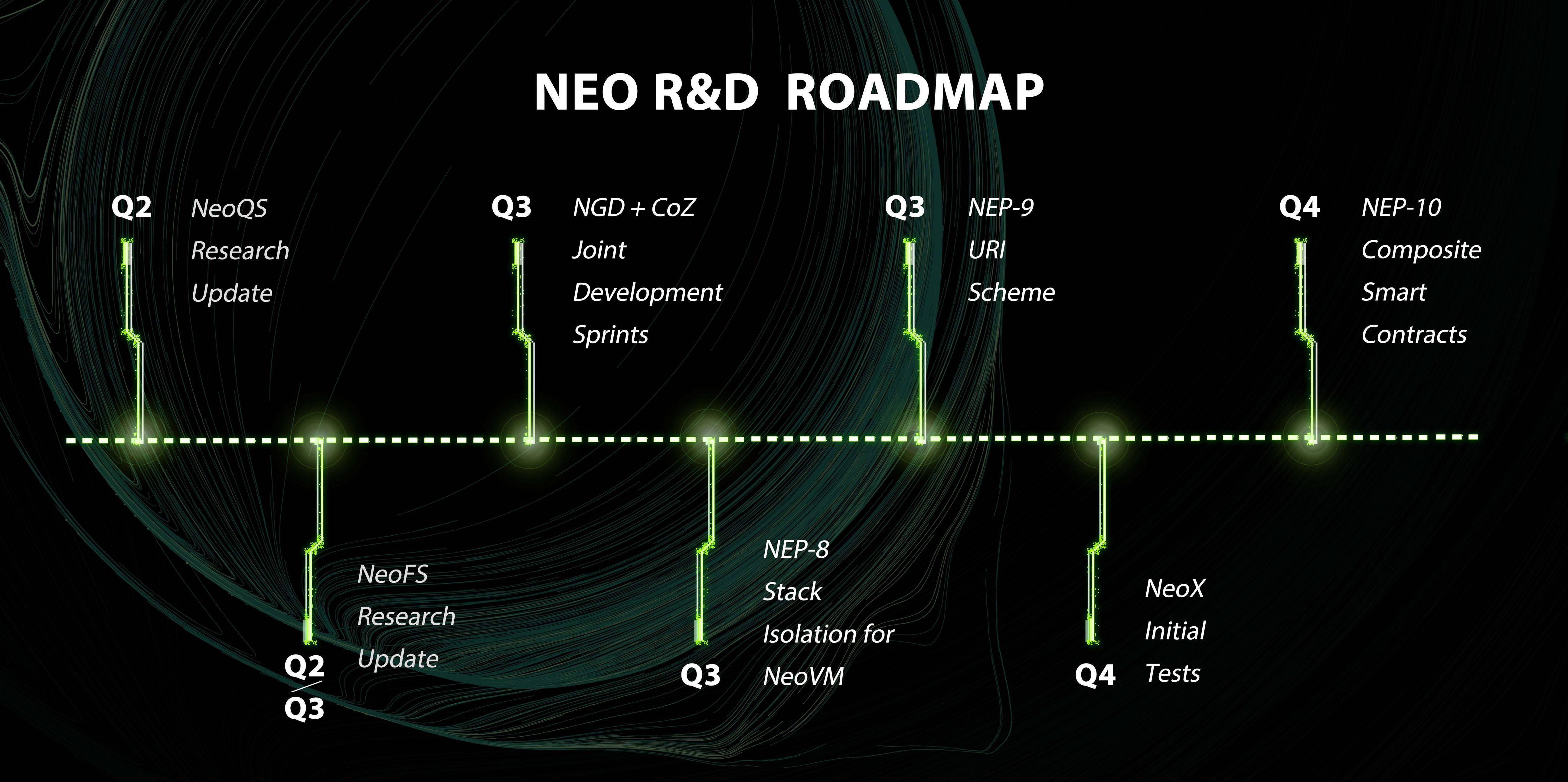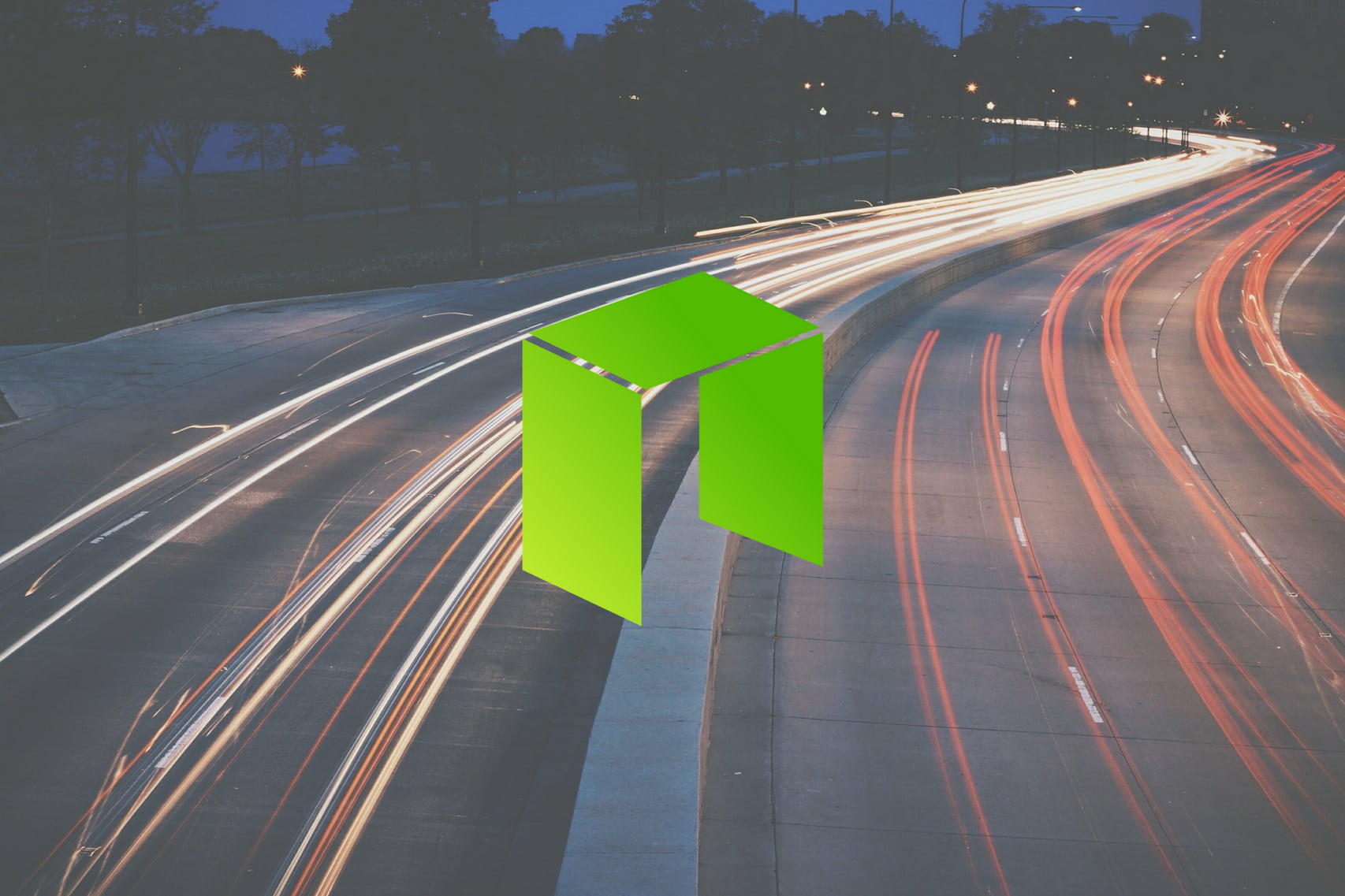NEO, the Chinese Ethereum competitor with the intention to digitize economies by merging digital identities with digital assets, announced earlier this month that it has prepared a roadmap for the remainder of the year, a memorandum of understanding with the Ontology project, as well as a few other developments.
NEO’s efforts this month indicate that they have an immediate focus on exposing the NEO platform to the world, and their bid to expand – which involved visits to the European Parliament – is an important step to pushing the project beyond the boundaries of China.
Here’s a look at NEO’s news and developments in June.
Neo Releases an R&D Roadmap for Q2–4 2018 That Communicates Major Updates
The NEO team has paid attention to the large flood of requests from the community regarding the progress of the project, and they responded with an R&D roadmap update that lays out the team’s R&D goals for the rest of the 2018.
The roadmap tells us that the most immediate update will concern NeoQS (Quantum Safe) Research, which is a cryptographic technique that has been thought of with quantum computing in mind. There is much discussion about how Quantum computers could pose a threat to the encryption mechanisms of decentralized networks.
NEO’s solution is a lattice-based mechanism which employs shortest vector and closest vector problems, which are noted to be more challenging for quantum computers. This update is expected to be released by the end of Q2.

Q3 will see a flurry of updates, as they plan to communicate their progress on the following:
- NeoFS (a distributed storage protocol)
- Joint development efforts with Neo Global Development and their open-source community “City of Zion”
- Their NEP-8 patch and its relation to the Neo Virtual Machine
- NEP-9 and how it will facilitate the transfer of NEO assets
Q4 will focus on initial tests for NeoX and NEP-10 composite smart contracts. The former is particularly worth monitoring because it will allow for cross-chain interoperability and exchange of assets across chains. Composite smart contracts entail extensions to existing smart contract standards, allowing contracts to work with new operations and methods.
The team has also spoken about their decentralization efforts, stating that they have completed nominee application APIs, which will be launched and open-sourced by the end of June for trackers to start utilizing.
NEO and Ontology (ONT) Sign a Memorandum of Understanding
Last month, NEO announced that they had signed an MoU with Ontology, the modular-focused platform that permits customization of public blockchains. This collaboration has been established with the intention of fostering cross-chain compatibility, using NEO dapps to bring together permissioned and permissionless blockchains.
The 2 projects have created a Joint Task Force to this end, and will invest their time towards creating standardized APIs, a shared ecosystem of smart contracts that applies across both public and private blockchains, and general cross-chain technology research.
It is expected that that collaboration will result in NEO and ONT using the NeoVM to facilitate cross-chain transactions, and to make the development of chains easier, as a set of standardized APIs will make it easy to develop on any chain that runs on NeoVM.
Development Progress and Global Expansion
NEO is keen on letting enterprise and individual investors know that their project is an alternative to platforms like Ethereum. Combined with a steady stream of development changes, the team hopes to prepare NEO for a much larger user base.
The team completed several development tasks this month and the last, including a GUI upgrade, smart contract triggers, updates to documentation, a new website, and multiple APIs. The full list of updates can be viewed on the blog post.
Lastly, in an extensive outreach effort, the NEO team conducted several meetups, hackathons, and workshops across the world to drive awareness and adoption of their platform. This included South America and China, as well as a discussion at the Smart Contracts Expo at the European Parliament in Brussels.
The Expo at the European Parliament featured NEO founder Da Hongfei, and representatives from the City of Zion community and European financial bodies discussing blockchain technology and its benefits to society and the economy. The panel was led by Romanian politician and Member of European Parliament Ivan Catalin. The goal of the Expo was to promote technical education so that lawmakers and industry insiders could work towards establishing “innovation friendly laws and regulations by 2020.”
On a lighter note, the team also announced a NEO Blockchain Game Development contest which is open for registration. The rewards for this competition total to over 3.5 million Renmibi, or about US$530,000. This endeavor is a bid to get developers interested in the platform in a fun, interactive way, riding the wave of interest that several community members and projects are already showing in using blockchain for gaming.
The deadline for this contest is August 15, and you can register here.
But like all other projects, the good news did little to protect it from the painful stumble of the market this month. However, the team does not seem deterred by the outside noise, and has concentrated their efforts on releasing updates that make their project stand out from its competitors.
Pay close attention to how the project progresses in Q3–4, which is an important period for its future.
Related: 5 NEO Projects to Get Excited About

